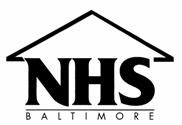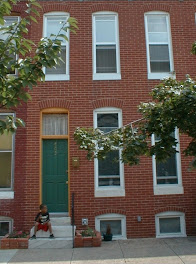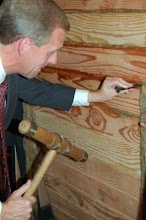Dear Editor,
This letter is in response to Ed Duffy’s op-ed piece in the Baltimore Examiner, which blamed the current U.S. mortgage and financial crisis on lax lending policies that came as a result of the Community Reinvestment Act of 1977 (CRA). Nothing could be further from the truth.
The current financial crisis is not the result of the extension of credit to low- to moderate-income and highly concentrated minority communities as urged by the CRA. The CRA “is intended to encourage depository institutions to help meet the credit needs of the communities in which they operate.” Those markets can be served responsibly, without creating extraordinary risk for lenders. In fact, for thirty years, NeighborWorks® organizations like Neighborhood Housing Services of Baltimore have helped provide mortgage credit to low-income communities with stellar results.
Many reports appear to have overlooked the fact that the current financial distress is a recent phenomenon created largely by institutions that are not subject to CRA requirements. Over the last several years lending by mortgage bankers and other non-depository intermediaries has eclipsed the production of depository lenders, accounting for more than half of the mortgage loans originated over the past five years. Additionally, a review of data provided by mortgage lenders pursuant to the Home Mortgage Disclosure Act reveals that lenders that are not subject to oversight by a federal banking agency (i.e. not subject to CRA) originated over half of the higher-priced conventional mortgage loans reported in 2005.
CRA did not push banks and other institutions to make loans to unqualified borrowers nor did it encourage them to relax underwriting criteria to the point where they failed to consider a borrower’s capacity to repay the loan.
For more than three decades CRA has encouraged the extension of credit to those with less than perfect credit histories. We know these borrowers can be successful homeowners. A sample of NeighborWorks® network originated mortgages, and new data from state housing finance agency-originated loans shows that these loans made primarily to low- and middle-income households, with average to below-average credit scores, have foreclosure rates significantly better than subprime.
For example, according to the Mortgage Bankers Association, 4.26 percent of subprime loans began the foreclosure process in the second quarter this year. In contrast, the foreclosure start rate for loans within the NeighborWorks network was just 0.21 percent. In fact, NeighborWorks performance is better than the prime market, which was reported by the MBA at 0.61 percent for the same period.
Sincerely,
Felix Torres Colon, Executive Director
Neighborhood Housing Services of Baltimore
skip to main |
skip to sidebar
+for+blog.jpg)
.JPG)
.jpg)
Baltimore boy enjoys the day on his front step

.JPG)
Potential homeowners attend our Homebuyer Education Class
.JPG)
Executive Director, Felix Torres Colon accepts governor's committment to excellence award

Board Chair, Ron Huffman helps seal the foundation of homeownership
Helping you endure these trying times by offering vital tips and information about homeownership and financial fitness.
FACING FORECLOSURE?
We can help. NHS of Baltimore is one of the leading foreclosure prevention nonprofits in the Baltimore region. We offer HUD certified counseling, loan modification mediation and refinancing. Get help today! 410-327-1200
NHS of Baltimore Website
Take our Homebuyer Education Class Online!
+for+blog.jpg)
- Neighborhood Housing Services of Baltimore Inc.
- For more information on our homebuyer education classes, foreclosure prevention, or to donate, please visit our website or call, 410-327-1200.
.jpg)
Baltimore boy enjoys the day on his front step

Potential homeowners attend our Homebuyer Education Class
Executive Director, Felix Torres Colon accepts governor's committment to excellence award
Board Chair, Ron Huffman helps seal the foundation of homeownership



